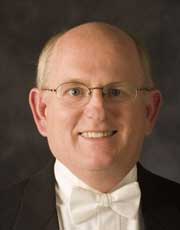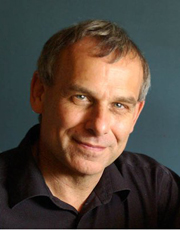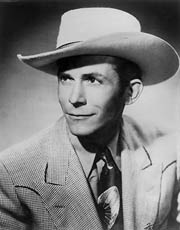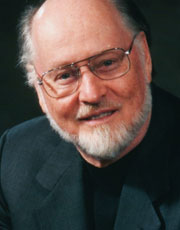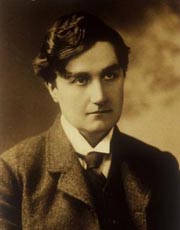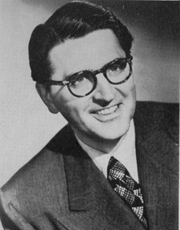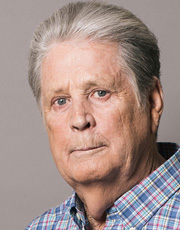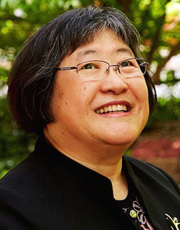In Celebration of the Human Voice - The Essential Musical Instrument
Home | Doo Wop | Barbershop | World | Contemporary | Christian | Vocal Jazz | Choral | Christmas | Instructional | Arrangements
Classical | Opera | Musicals | Personality | Young Singers | Disney | Videos | Songs | The Artists

Choral Composers
So much of what many of us would think of as choral music is traditional, centuries-old works, things our parent and grandparents grew up with, but that’s really not the be-all and end-all of choral works. There are many talented, genius composers of the last century and a bit, who have created some beautiful, stellar works that are being sung by choirs around the world today. Why not check out some of these brilliant men and women’s work? If you’ve never tried modern choral work, you’re in for a lovely surprise. Why not treat yourself to that surprise today?
![]() Composers - Early Music | Classical | 20th Century | Modern
Composers - Early Music | Classical | 20th Century | Modern
Displaying 301 - 309 of 309 items.
Mack Wilberg
Mack Wilberg was appointed Music Director of The Tabernacle Choir in 2008, having served as Associate Music Director since 1999. He is a former professor of music at Brigham Young University, where he received his bachelor's degree; his master's and doctoral degrees are from the University of Southern California. Alongside Wilberg's conducting responsibilities he is active as a pianist, choral clinician, composer, arranger, and guest conductor throughout the United States and abroad. In addition to the many compositions he has written for The Tabernacle Choir, his works have been performed by artists such as Renee Fleming, Frederica von Stade, Bryn Terfel, Rolando Villazon, Deborah Voigt, and The King's Singers. Wilberg's arrangements and compositions are performed and recorded all over the world.
Jonathan Willcocks
Jonathan Willcocks was born in Worcester, England, and after early musical training as a chorister at King's College Cambridge and an Open Music Scholar at Clifton College he took an Honours degree in Music from Cambridge University where he held a choral scholarship at Trinity College.
Jonathan is currently Musical Director of the Guildford Choral Society, the Chichester Singers and the professional chamber orchestra Southern Pro Musica, and freelance conducting and workshop engagements in recent seasons have taken him to many parts of the world including USA, Canada, New Zealand, Australia, South Africa, Singapore, China and most of the European countries as well as the United Kingdom.
Hank Williams
Hank Williams (September 17, 1923 - January 1, 1953), born Hiram King Williams, was an American singer-songwriter and musician regarded as one of the most important country music artists of all time. In the short period from 1947 until his death, at 29, on the first day of 1953, Williams recorded 35 singles (five of which were released posthumously) that would place in the Top 10 of the Billboard Country & Western Best Sellers chart, including eleven that ranked number one.
John Williams
John Towner Williams is an American composer, conductor and pianist. In a career that has spanned seven decades, he has composed some of the most popular, recognizable, and critically acclaimed film scores in cinematic history. Williams has won 25 Grammy Awards, seven British Academy Film Awards, five Academy Awards, and four Golden Globe Awards. With 52 Academy Award nominations, he is the second most-nominated individual, after Walt Disney. His compositions are considered the epitome of film music; Classic FM considers Williams to be one of the greatest composers of classical music in history.
Ralph Vaughan Williams
Composer, Conductor. He is considered the most important and influential British musician of his generation. Vaughan Williams' music displays a distinctly English character derived from his country's folk and Renaissance tradition, which he absorbed into a very personal style. His nine symphonies constitute one of the outstanding achievements of the 20th Century repertory. Ralph (pronounced "Rafe") Vaughan Williams was born at Down Ampney, Gloucestershire, the son of a clergyman. On his mother's side of the family he was related to Charles Darwin. He studied at the Royal College of Music and at Cambridge, followed by private instruction with Max Bruch in Berlin (1897). Despite his talent and training he was slow to develop as a artist because he had little sympathy for the Wagner-dominated musical scene of the time. While at the RCM in 1895 he formed a lifelong friendship with fellow student Gustav Holst, and the two tackled the problem of creating a new home-grown musical idiom. Vaughan Williams hit upon a solution through his discovery of old English folk and church music. From 1903 he gathered and published over 800 country tunes while also serving as editor of "The English Hymnal" (1904 to 1906), a collection of sacred vocal works from the 16th Century to the early 1900s. He contributed several original pieces to this set, in which he experimented with Elizabethan modal harmony within a modern framework.
Meredith Willson
Meredith Willson - musician, playwright and composer - was best known for the book, words, and music for The Music Man (1962). He wrote two other musical plays, including The Unsinkable Molly Brown (1964). Many of his songs are standards, including "You and I", "May the Good Lord Bless and Keep You", "It's Beginning to Look Like Christmas", "Seventy-six Trombones", and "Till There Was You", which was a surprising song choice for a hit record by The Beatles. Willson left Mason City, the setting for "The Music Man", in 1919 to attend Damrosch Institute (now Juilliard) in New York. He played flute and piccolo in John Philip Sousa's band from 1921 to 1923 and then joined the New York Philharmonic Orchestra from 1924 to 1929. In 1930 he got a job in radio in California. Radio was his primary source of income over the following twenty-five years. He also composed several orchestral works during the '30s and '40s, including symphonies for The Great Dictator (1940) and The Little Foxes (1941). In 1951 the stage producers Martin and Feuer proposed that Willson write a musical comedy about his Iowa boyhood. With his common touch, they said, it was sure to be a hit. After seven years, he finally got what turned out to be his masterpiece onto the stage. "The Music Man", which Willson said was "an Iowan's attempt to pay tribute to his home state", premiered on Broadway in 1957. Robert Preston recreated his most famous role and Willson's most famous character, that of Professor Harold Hill, in the film production of The Music Man (1962).
Brian Wilson
Brian Douglas Wilson is an American musician, singer, songwriter, and record producer best known for being the multi-tasking leader and co-founder of the Beach Boys. After signing with Capitol Records in 1962, Wilson wrote or co-wrote more than two dozen Top 40 hits for the group. Because of his unorthodox approaches to song composition and arrangement and mastery of recording techniques, he is widely acknowledged as one of the most innovative and influential creative forces in popular music by critics and musicians alike.
Stevie Wonder
Stevland Hardaway Morris (born Stevland Hardaway Judkins), known by his stage name Stevie Wonder, is an American musician, singer, songwriter, record producer, and multi-instrumentalist. A child prodigy, he became one of the most creative and loved musical performers of the late 20th century. Wonder signed with Motown's Tamla label at the age of 11 and has continued to perform and record for Motown as of the early 2010s. He has been blind since shortly after birth.
Chen Yi
Chen was born and raised in Guangzhou, China into a talented family. Her parents were doctors and musicians; her mother played the piano, and her father was a violinist. Her older sister was a child prodigy, and both she and their younger brother continue to work as professional musicians in China.
Chen began studying piano at the age of three, heavily influenced by the music of Western composers such as Bach and Mozart. However, once the Cultural Revolution began in 1966, Western attitudes were severely shunned and arts were opposed. For ten years, education came to a halt and people were relocated to work in large communes in countryside. Chen's father and older sister were sent away, but she managed to stay in her hometown a while longer and continued to practice music, although she was forced to stuff a blanket inside her piano in order to dampen the sound and play her violin with a mute. When she was 15 years old, the family house was searched, all possessions were taken, and the rest of her family was dispersed to different locations to perform compulsory labor in the countryside.
 |  |
Page 1 = Albrecht-Cherwien Page 2 = Chilcott-Gesualdo Page 3 = Gibb-Ligeti Page 4 = Lightfoot-O'Regan Page 5 = Ockeghem-Singh Page 6 = Sirett-Whitbourn Page 7 = Wilberg-Yi
Select a Category |
Want to Sing? - Find a Chorus Near You
List of Choruses by State | List of Choruses by City

